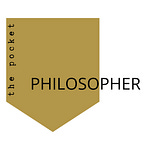Philosophers,
I hope you’ve had a wonderful weekend. Today, we’re going to begin part II in our Two-Week Philosophical Crash Course.
We’re starting in a potentially unexpected place, analyzing the philosophy of Moses.
Depending on where you are coming from, Moses might usher images ranging from a Sunday School cartoon baby-in-a-basket, to a sacred-holy prophet, to founder/patriarch.
Yet for others, Moses serves as an archetype—not necessarily a historical figure but the representation of humanity itself—a role he would bestow upon the whole of Israel upon his death.
Regardless, there are few people in today’s world who haven’t been touched by Moses, whether that be directly or indirectly.
Moses remains a cradle for the evolution of Judaism and Jewish identity, Islam, and Christianity.
Each of these traditions claim Moses in a unique way, and each of these faiths have outstretched to touch every corner of the world.
So, if we were to examine the philosophy of Moses, what would we find?
I’m glad you asked, let’s dig in!
Epistemology
Much like Jesus or St. Augustine which we studied last week, it appears that Moses teaches knowledge acquired through direct experience with “god.” I put god in parentheses, because in the 4 millennia since his death the definition of god would wax and wane, evolve and stifle in countless ways.
Regardless of what “god” meant to Moses and early followers of this way, it was undoubtedly considered the source of knowledge.
In fact, epistemology (how we acquire knowledge) is a bedrock tenant of this tradition—and the other traditions which would spur from it.
The cradle of this story can be found in the biblical narration of Genesis/Exodus, in which Moses receives the laws of god directly after ascending a mountaintop alone.
Thus, according to the philosophy of Moses, we acquire knowledge from god itself. In fact, some students of Moses might say, “Moses acquired the knowledge of god as an intermediary, and we (that is, everyone to come) obey.”
Ethics
This is probably the toughest section to break-down. Therefore, in the name of simplicity I would point you in the direction of the Ten Commandments: the very knowledge of god which Moses taught and fought to protect.
Moses ushers in a unique element in the history of philosophy—an ethic based almost exclusively on the adoration of an epistemology.
To put it another way, Mosiac Ethics revolve around the protection of its source of knowledge.
Ontology
Likewise, it appears that the object of Moses’ study is twofold—the primary object being the nature of god itself.
The secondary object would appear to be wisdom—wisdom to organize, govern, and rule a people with disparate identities, hopes, dreams, and fears.
The overwhelming through-line of Moses’ life points toward the tension inherent in the creation and establishment of a people—a people with a unique awareness in their divine nature and potential.
Greatest Work
While Moses is not the attributable author of any work in specific, the Biblical texts of Genesis and Exodus capture his life, sayings, and decisions. As an archetypal study of leadership, it’s an astounding survey.
I’m not deeply familiar with extra-biblical commentary on Moses, so if anyone would like to suggest further reading please free to do so!
I hope you enjoyed the continuation of our series, and I look forward to continuing the discussion tomorrow!
Until then,
Matt











